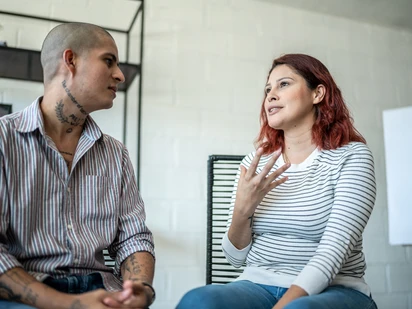Recovery is a process of change through which individuals:
- Improve their health and wellness
- Live a self-directed life
- Strive to reach their full potential
Recovery varies based on a person's situations and needs, and it looks different for everyone.
Recovery is about more than sobriety and abstinence. Recovery is about coming to recognize things you've been through and all you've overcome. Recovery focuses on individual needs.
The path to recovery may look different for each person. Pathways to recover include activities that promote health and well-being, such as:
- Going to peer support meetings.
- Seeking treatment.
- Connecting with community resources.
- Developing and maintaining an ongoing network of support.
Recovery often looks different over time. Circumstances change as recovery progresses. Having allies and a community of support helps in sustaining long term recovery.
Dimensions of recovery
Below are the four dimensions that help support a life in recovery.
Health
Overcoming or managing disease(s) or symptoms—for example, abstaining from use of alcohol, illicit drugs, and non-prescribed medications if one has an addiction problem—and for those in recovery, making informed, healthy choices that support physical and emotional wellbeing.
Home
A stable and safe place to live.
Purpose
Participating in society, meaningful daily activities, such as a job, school, volunteerism, family caretaking, or creative endeavors, and the independence, income and resources.
Community
Relationships and social networks that provide support, friendship, love, and hope.
Recovery is possible for everyone
When you’re struggling with an alcohol, drug, gambling or mental health problem, it can feel like getting your life back is impossible. But we want you to take heart in this fact — recovery can and does happen.
Recovery is possible for everyone.
Wherever you are in your recovery journey, we are here to help.
